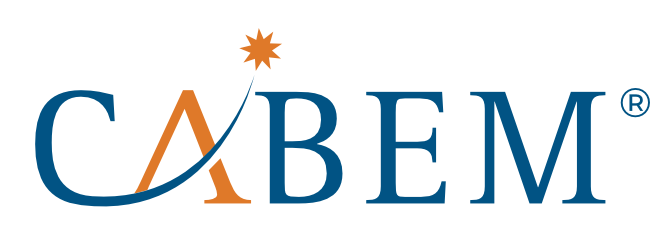Credentialing is an important task in a variety of industries, especially in those where there are health and safety concerns such as law enforcement, construction, or manufacturing. When there are legal requirements to credentialing employees and making sure they have the required skills and experience to do the job properly, it is crucial that organizations manage and track this information effectively.
For smaller organizations, the credentialing process is usually managed with filing cabinets and a combination of Office Suite applications such as Word Documents or Excel spreadsheets. But as organizations grow and their needs become more complicated, the software is needed to keep up to date with credentialing requirements. Keeping track of the required paperwork, managing any expired credentials, upcoming training, and more can be a cumbersome process.
Credentialing is not only beneficial to the organization, but to the individual as well. Employees who have optional certifications in their required industry can be more valuable and get better jobs in their field. Robert Half’s salary guide suggests some credentials can increase your salary by 10 percent or more.
While there are many options on the market today, many cater specifically to the medical and healthcare industry, which is the most credentialed industry according to studies from the U.S Bureau of Labor Statistics. If you would like to learn more about the options available, read our article on the best credentialing management software platforms out today. While it’s easy to recognize the importance of healthcare credentialing, it’s important to mention the other industries that can benefit from this type of software.
Some industries other than healthcare that have extensive credentialing requirements include:
- Law enforcement
- Construction
- Manufacturing
- Finance
In this blog post, we will discuss these industries and how credentialing software can help make the process of tracking all required certifications and credentials more efficient and stress-free.

Credentialing In Law Enforcement
There are more than 670,000 law enforcement officers in the United States. Each of those officers must complete a thorough training and onboarding process, as well as maintain and renew specific certifications each year. Examples of licenses a police officer would have included a firearms license, a CPR certification, and/or a K9 unit certification. Law enforcement leaders and state agencies are tasked with keeping up with the credentials of each officer. Having credentialing software for law enforcement agencies allows them to better:
- Improve safety for officers and citizens.
- Avoid penalties and fines for lapsed credentials.
- Train a more prepared law enforcement for ever-changing technology.

Credentialing software for law enforcement also allows the unit to not only track the certification of its force, but also make sure any third-party vendors are properly vetted. A law enforcement agency that has this type of software can make sure any vendors such as IT companies or security have the proper access credentials to be on-site and perform their duties. When law enforcement officials are protected while doing their job, they can better protect the community.
Credentialing In Construction
It goes without saying that quality construction companies don’t want just anyone constructing buildings or using heavy machinery on a project site. There are roughly 150,000 construction site accident injuries each year, according to the Bureau of Labor Statistics. Before a construction worker attempts a new skill, he or she must be able to perform this in the field. A proper credentialing software system with training capabilities can administer internal certifications and records of completed on-the-job training. It can also store any outside certifications that are required such as OSHA, or other courses an individual has taken such as from NACE. This way no employee will be operating equipment that he or she is not properly trained on or is not certified.
Credentialing software for a construction company can notify admins when employees need safety or other training, and when credentials are about to expire such as any OSHA documentation.

A full 15 percent of workers’ compensation costs are spent on workers who were injured while at a construction site. By incorporating a credentialing software platform into the business, construction company owners may not only benefit from fewer workers’ comp claims but they’ll also:
By choosing a credentialing software that can be customized, construction company owners can also keep a record of equipment and any maintenance work completed on the machinery. Ensuring that each machine meets OSHA standards of safety is crucial to maintaining a hazard-free work environment.
- Ensure workers are properly credentialed before operating large machinery.
- Keep all workers current on safety standards.
- Cause fewer injuries to workers on site.
Credentialing In Manufacturing
While credentialing isn’t as commonly required in manufacturing, it still can benefit an organization in that industry as well as prospective job-seekers. “Credentials included in this group cover foundational academic, personal and workplace skills; cross-cutting technical skills; and occupation-specific skills,” according to National Network’s list of manufacturing credentials. Whether your crews handle machining and metalworking or welding and automation, having a competent workforce is important. There are several organizations that provide courses and certifications in the field of manufacturing, such as the Manufacturing Institute, which offers everything from fabrication to die casting.

Manufacturing credentials can help increase the effectiveness, efficiency, and performance of the labor market, and when manufacturers employ a reliable credentialing software platform, they benefit from:
- Ensuring that the facilities have the properly skilled workers and can keep up production pace
- Producing products with consistent quality
- Improving safety in the workplace and compliance with OSHA
Bettering the credentialing process in the manufacturing industry helps companies meet the overwhelming demand for skilled laborers. There is a projected shortage of 2 million manufacturing workers over the next decade, according to a study by Deloitte and the Manufacturing Institute. Utilizing credentialing software for manufacturing can help companies recruit and retain the best remaining workers in the industry.
Credentialing In Finance
The finance industry has many specialty credentials for experts in different areas. Whether your employees are tasked with assisting customers with their savings, retirement, or home loan, you need to know that the worker is specifically skilled in that practice. Different credentials are needed for different specialty services, like financial planning, retirement planning, investment management, and insurance professionals. Credentialing software for the finance industry is a great way to keep the credentials up-to-date.

For financial planning firms, for example, employees should have the Certified Financial Planner certification. Being able to assure your clients that your employees have the most current education, skill-set, and can work with the most advanced technology can help grow your business. Likewise, for the retirement planning sector, The Balance advises employees should be credentialed with one of the following three designations:
- Retirement Management Analyst (RMA)
- Retirement Income Certified Professional (RICP)
- Certified Retirement Counselor (CRC)
The finance industry has a responsibility to build trust with the customer. Using a customizable credentialing system allows you to keep track of your employee’s credentials and abilities to meet the customer’s needs. No matter the financial sector you operate in, your team can benefit from credentialing software in the following ways:
- Hire and maintain the most qualified candidates.
- Build trust with customer by promoting the credentials of your employees.
- Meet all industry standards required for your financial services.
- Properly advise your client’s finances and promote growth within your company.
Because there are numerous credentials available to finance professionals, the credentialing software allows you to keep track of them all in an efficient and automated way.

Credentialing Beyond The Healthcare Industry
There are more than 6,200 hospitals in the United States operating on a collective budget of more than $1 trillion, according to the American Hospital Association. With more than 36.5 million people being admitted into a U.S. hospital each year, it is easy to understand the importance of credentialing in the medical field. While it’s crucial to offer the most skilled and qualified medical professionals to each person in need, it’s also important to consider the broader economy and other industries that impact the health and safety of individuals.
For the local law enforcement units tasked with protecting those hospitals, proper credentialing is essential. The construction companies hired to build the hospitals or add on specialty units must have the most advanced skills to construct a reliable facility. For the patients who rely on proper manufacturing of medical devices and equipment, the credentials of those employees are important too. And lastly, without the professional financial guidance and backing of finance facilities, the hospitals may not be able to stay in operation.
All of these significant and important industries work together to keep the public safe and healthy and require the use of proper certifications and credentials. The organizations that can manage these requirements the most effectively use software to do so.

CABEM’s Competency and Credentialing Software
As your credentialing requirements evolve and grow, consider the benefits of implementing a system that allows you to track, renew, and monitor the necessary credentials of your team members automatically with software.
We have built a program that solves this need, called the Competency Manager. If you’d like to see a product demo of our competency and credentialing software system or ask any other questions, please visit our website.

